Unveiling truths: Why last-minute flight deals are a myth
20 March 2024The origin of the myth lies in that distant cousin who managed to snag a flight for 1&. In that friend’s brother-in-law who showed up at the airport with suitcases and no idea of the destination, yet managed to secure a flight for that very morning at half price.
To add to the confusion, numerous websites claim to offer “last-minute flights,” unrepeatable deals that you must snatch up instantly before they disappear… We usually aren’t lucky, but we trust that if we stay vigilant, someday we will find that last-minute deal of the century. Because the universe is balanced, and karma makes everything fair, so that day will come sooner or later… or won’t it?”
The truth is, according to the way airlines set the prices of their flights, the last tickets for a flight not only aren’t cheaper but are more expensive.
This phenomenon, although contrary to popular belief, has been entrenched in airlines’ commercial strategies for decades, and to understand how it works, we must turn to the concept of Yield Management.
What is Yield Management?
Essentially, yield management involves varying ticket prices over time based on sales forecasts, with the aim of maximizing profit margins.
One of the most common practices is to adjust ticket prices in real-time according to demand. Given that each flight has a limited number of seats and airlines can freely set prices, it’s logical to think that they will strive to maximize profit by gauging the limit passengers are willing to pay at any given moment.
For example, if a flight is selling well, companies will tend to raise prices because, for some reason, there is great interest in that flight. This would explain, for instance, why tickets are more expensive during holiday periods (when more people want to travel) and, conversely, cheaper during the rest of the year.
But what happens when the departure date is near?
When the departure date of the flight is imminent, it doesn’t make sense to think their goal is to get rid of the last tickets, but rather to maximize profit from users who left the booking until the last moment and who are usually willing (or have no choice) to pay whatever is asked.
Price evolution on the some popular routes
But enough talk, let’s get to the data. We have created graphs based on searches for the busiest routes in Spain, but we can extend to every country, to reflect the price evolution until the day of the flight (on the X-axis are the days until departure; Y represents euros):
As you can see, with the exception of the Madrid to New York route, which happens but not as prominently, significant price increases occur in all destinations in the days leading up to takeoff. We tested many other routes and found always a similar trend.
In fact, the most drastic increase occurs between the day before departure and the day of departure, when last-minute deals are supposed to appear.
Check it out for yourself
If this data hasn’t convinced you, on Trabber, you can check the price evolution of flights for many route.
To do this, on the left-bottom-hand column of the search results page, click on “price evolution“, where a dynamic graph will appear showing the price per day:
Keep in mind that the graph will only appear when searches have been previously made for that route.
Why do we keep hearing terms like “last-minute deals”?
After all this, you may wonder: why do I still come across some agency websites or metasearch engines to have the key to snagging a dirt-cheap last-minute flight?
It is possible that you will come across a promotion where an airline has released a certain number of seats at greatly reduced prices. However, aside from these occasional campaigns, if you see that an agency or search engine focuses its message on ‘last-minute deals,’ it is likely taking advantage of this widely established myth in the public eye, which continues to work well as a lure due to misinformation.
So, if you want to help other travelers be better informed, share this article and… let the word fly!

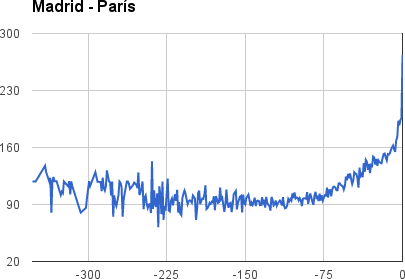
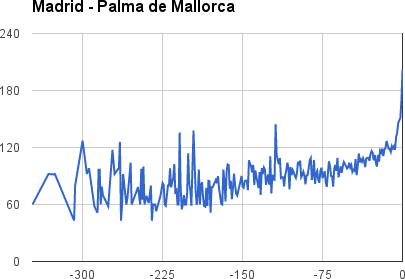
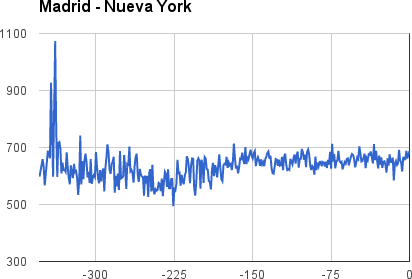
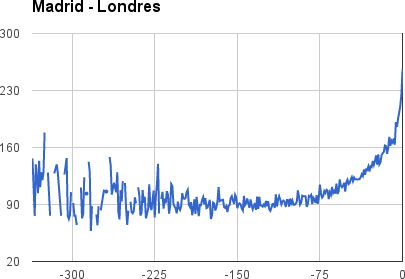
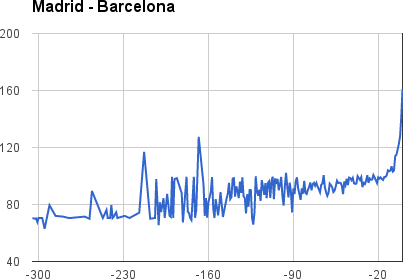
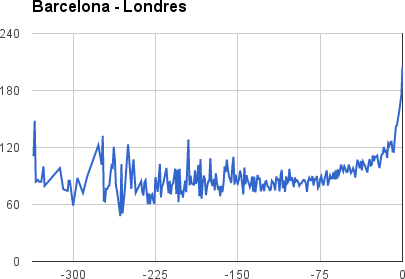
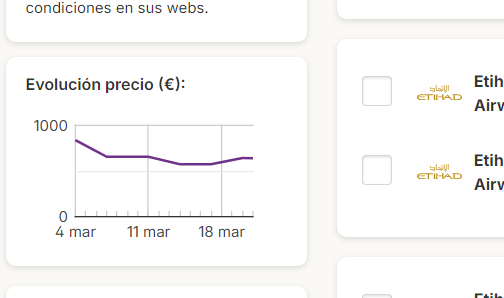

Leave a Reply